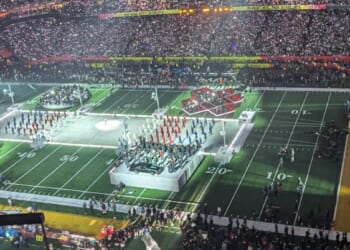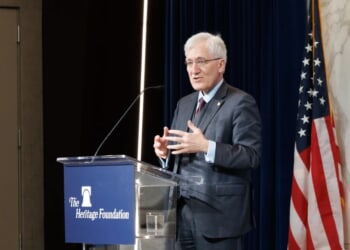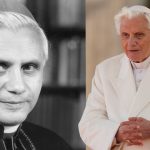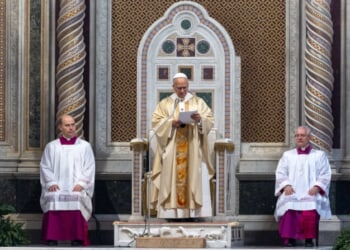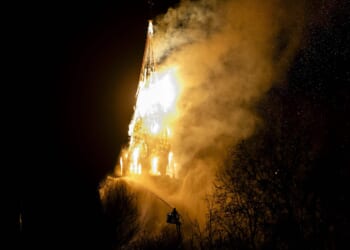As referred to in my last article, it is of utmost importance to cultivate an understanding of the spiritual realm in order to discern the meaning of life, the purpose of freedom, and the fulfillment of our desires. By studying angelology, for example, we come to understand the harmony of being in the universe, from God to His Creation—a notion which is in direct opposition to the focuses of the modern world, from secular humanism and the so-called Enlightenment onward.
The modern age, beginning with humanism in the 1400s, is a march toward the conquest of the ego, which the Middle Ages had mortified in its homage to God. What we see is that, as the ego emancipates itself from religious authority in the person of Luther, from traditional philosophy in the persons of Pico della Mirandola, Ficino, Descartes, Condorcet, Kant, and Hegel, from political principals in the persons Hobbes, Locke, and Rousseau, it actually impoverishes itself because it is detached from the very source of life: God. This progressive emancipation of the ego, apparently putting man in the center, is what ends up bringing us to the eclipse of man with transhumanism and posthumanism, something eloquently developed by Charles Rubin in his book, The Eclipse of Man.
Fr. William Slattery explains how modernity presents the myth of the universe as a machine, something that has contaminated the mindset. Humans have come to be imagined mechanistically. Since machines have no freedom but are predetermined (let us not forget that “robot” is a Czech word which means “slave”), human free choice is imagined to be merely an appearance. This is the ideology known as determinism.
We have gone from mechanism to determinism. Man is nothing but an evolutionary machine in such a worldview, and we see this evolutionism is more about philosophical ideology than it is about science. Clearly, such a view is not as rich as that provided by Scripture.
Elsewhere, Fr. Slattery writes that if we talk about man as a biomachine, wanting to upgrade our brain like a computer, hack our lifestyle like software, map our genome, and engineer society, it is due to the seventeenth-century Newtonian vision of the cosmos as machine…Modernity’s cosmology emptied the universe of all meaning beyond the materialistic so that we now live inside a windowless universe where we may see the facts of the universe, but we do not see meaning, order, or purpose.
Clearly, there is more to the universe than meets the eye. In fact, our Christian forefathers saw it as a designer-made universe, one with “built-in significance,” imbued with wisdom and goodness because it was authored by the Lover. The achieved perfection was already there. The only difficulty was to make an adequate response. So, whereas modernity sees the universe as a cosmography, Catholicism sees it as a cosmology, i.e. a rational explanation for the universe in all of its dimensions.
What is behind this modern lie? From a theological perspective, this cannot be mere coincidence, or something solely based on human philosophy. There is an intelligence that is willingly out to divide and compartmentalize our perception of reality. It is like the opening scene from Batman: The Dark Knight (2008) where we view a bank heist. Everyone is involved in it, each doing his separate part, only to get killed and find one lonely survivor, a mastermind, the Joker. The fiendish character of the Joker lies behind much of the evil that causes havoc in the city. This cannot help but make us think about the nefarious intelligence behind much of the modern era, the bitter fruits of which we experience today.
What hope is there? We must remember that we are in the presence of a God, Who, as Creator of the universe, is the loving, jealous Master of it. After all, St. Thomas begins his Treatise on Charity discussing friendship, which is about benevolence, reciprocity, and the common life. God wants our good (benevolence), but He wants this reciprocated in a common life with Him. He never ceases to remind us of His right of authorship, and it is always upon this right that the Bible founds His claim to dispose of human affairs at His good pleasure.
Like His works, all God’s ways are perfect: Dei perfecta sunt opera, et omnes eius judicia, but woe to him who sets himself up against Him were it only in the secret depths of his heart. Such is the mystery of evil, of the devil’s first sin, the incurvatus nimis, so curved in on himself as not to consider the Creator but then to paradoxically find himself slave to himself, his own whims and passions.
Real freedom and happiness come in realizing who one is in relation to God, especially in realizing one’s unique, individual, unrepeatable vocation and mission in this cosmos. The limits of our nature and vocation are what define us and help us to act as freely as we ought. While definitions and vocational, spiritual meaning itself may seem restricting to a libertine, they are what give man the freedom to be himself, making him happy and at peace in this loving truth from a loving Father.
Photo by Steve Johnson on Unsplash



